Mozart is a 1955 Austrian drama film directed by Karl Hartl and starring Oskar Werner, Johanna Matz and Gertrud Kückelmann. It is also known by the alternative title The Life and Loves of Mozart. It was entered into the 1956 Cannes Film Festival. The plot explores the mental state of Mozart during production of his final opera The Magic Flute. Werner's portrayal of Mozart was unusual for the time in playing him as a cheerful and easygoing young man, reflecting the postwar optimism of the newly restored Austrian Republic.

Suburban Cabaret is a 1935 Austrian musical drama film directed by Werner Hochbaum and starring Mathias Wieman, Luise Ullrich and Oskar Sima. It was shot at the Sievering Studios in Vienna. The film's sets were designed by the art director Alfred Kunz. It is based on the play Der Gemeine by Felix Salten.

Ideal Woman Sought is a 1952 Austrian comedy film directed by Franz Antel and starring Inge Egger, Jeanette Schultze and Waltraut Haas. It was made at the Schönbrunn Studios in Vienna. The film's sets were designed by the art director Felix Smetana.

The Spendthrift is a 1953 Austrian historical musical film directed by Leopold Hainisch and starring Attila Hörbiger, Josef Meinrad and Maria Andergast. It is an adaptation of Ferdinand Raimund's play of the same name.
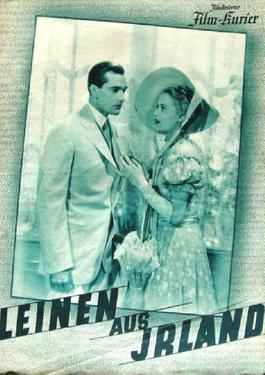
Linen from Ireland is a 1939 German drama film directed by Heinz Helbig and starring Otto Treßler, Irene von Meyendorff, and Friedl Haerlin. It was part of an ongoing campaign of anti-Semitism in German cinema of the era, and was also intended to discredit the governance of the old Austro-Hungarian Empire. By the time of the film's release in October 1939, Britain and Germany were at war, so it was also useful in creating anti-British sentiment.

Cordula is a 1950 Austrian drama film directed by Gustav Ucicky and starring Paula Wessely, Attila Hörbiger and Jane Tilden. It is based on a 1925 poem by Anton Wildgans about a woman in a small town who falls pregnant to a local forester serving in the Austrian Army during the First World War.

Call Over the Air is a 1951 Austrian drama film directed by Georg C. Klaren and Georg Wilhelm Pabst and starring Oskar Werner, Lucia Scharf and Fritz Imhoff.

Love, Girls and Soldiers is a 1958 Austrian musical comedy film directed by Franz Antel and starring Renate Holm, Willy Hagara and Carla Hagen.
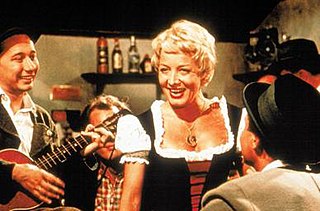
War of the Maidens is a 1957 Austrian-German comedy film directed by Hermann Kugelstadt and starring Oskar Sima, Kurt Heintel and Mady Rahl. It was shot at the Schönbrunn Studios in Vienna and at the studios in Salzburg. The film's sets were designed by the art director Wolf Witzemann.

Imperial and Royal Field Marshal is a 1956 Austrian historical comedy film directed by E. W. Emo and starring Rudolf Vogel, Gretl Schörg, and Mady Rahl.
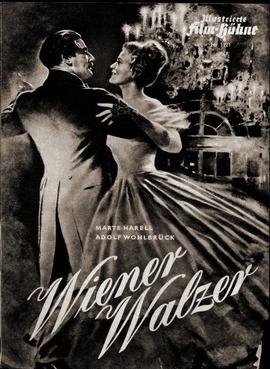
Vienna Waltzes is a 1951 Austrian historical musical drama film directed by Emil E. Reinert and starring Marte Harell, Anton Walbrook and Lilly Stepanek. It is also known by the alternative title of Vienna Dances.
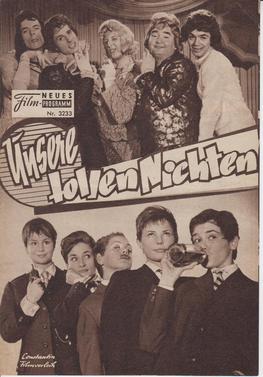
Our Crazy Nieces is a 1963 Austrian comedy film directed by Rolf Olsen and starring Gunther Philipp, Vivi Bach, and Paul Hörbiger. It was the second part in a trilogy of films which began with Our Crazy Aunts in 1961 and finished with Our Crazy Aunts in the South Seas.

Wedding in the Hay is a 1951 Austrian-German comedy film directed by Arthur Maria Rabenalt and starring Oskar Sima, Inge Egger and Kurt Seifert. It was shot at the Schönbrunn Studios in Vienna and the Bavaria Studios in Munich. The film's sets were designed by the art director Felix Smetana.
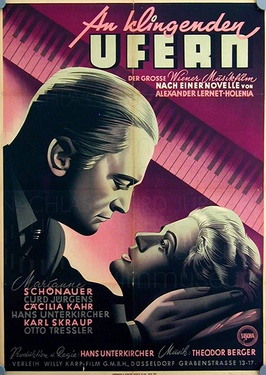
On Resonant Shores is a 1948 Austrian drama film directed by Hans Unterkircher and starring Marianne Schönauer, Curd Jürgens and Otto Tressler. The screenplay was by Alexander Lernet-Holenia who also wrote a novella based on the story. It was shot on location in the Austrian state of Carinthia including at Gurk Cathedral and around Lake Ossiach. The film's sets were designed by the art director Ernst Rampak. It was praised by Austrian film critics.

The White Dream is a 1943 musical comedy film directed by Géza von Cziffra and starring Olly Holzmann, Elfriede Datzig and Wolf Albach-Retty. The film was made by Wien-Film, a Vienna-based company set up after Austria had been incorporated into Greater Germany following the 1938 Anschluss.

Archduke Johann's Great Love is a 1950 Austrian historical romantic drama film directed by Hans Schott-Schöbinger and starring Marte Harell, O.W. Fischer and Christl Mardayn.

The Immortal Face is a 1947 Austrian historical drama film directed by Géza von Cziffra and starring Marianne Schönauer, O.W. Fischer and Helene Thimig. The film's sets were designed by the art director Fritz Jüptner-Jonstorff. Géza von Cziffra adapted the screenplay from his own 1943 play of the same title.
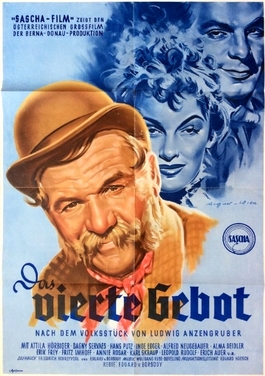
The Fourth Commandment is a 1950 Austrian historical drama film directed by Eduard von Borsody and starring Attila Hörbiger, Dagny Servaes and Inge Egger. It was shot at the Sievering Studios and on location in the Vienna Woods. The film's sets were designed by the art director Gustav Abel. It was released in West Germany the same year by Union Film. It is based in the 1878 play of the same name by Ludwig Anzengruber.

The Schimeck Family is a 1957 Austrian comedy film directed by Georg Jacoby and starring Theo Lingen, Fita Benkhoff and Helga Neuner. The film's sets were designed by the art director Leo Metzenbauer. It is loosely based on the play of the same title by Gustaf Kadelburg, which had previously been adapted into a 1935 German film The Schimeck Family.

Everything for the Company is a 1935 Austrian comedy film directed by Rudolf Meinert and starring Oskar Karlweis, Felix Bressart and Otto Wallburg. Many of those involved in the film's production had recently fled from Nazi Germany. It was shot at the Schönbrunn Studios in Vienna. The film's sets were designed by the art director Artur Berger. A separate Dutch version De Vier Mullers was also produced, directed by Meinert and starring Johannes Heesters.



















